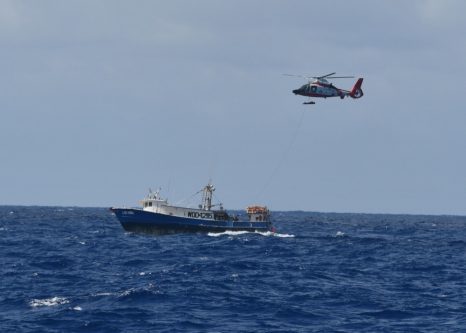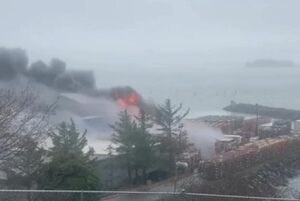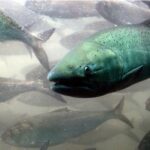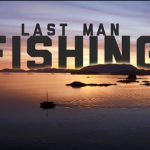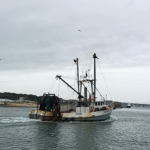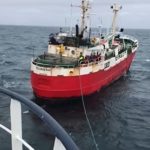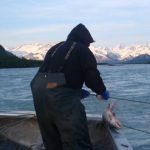Category Archives: Western Pacific

A Fishery Management Proposal
Its frustrating to watch fish regulators on the various fishery management councils continuously cut back on fishermen allocations with no regard for how they will make up for the “scientific” decision that takes revenue from them. I have reached out to various politicians to create a Farm Bill for fishermen, which would be a huge undertaking for the Congress, and in the current political climate, it seems like an impossible task, even though it is needed. In the meantime, the mismanagement continues, and people are pushed closer to exit the industry, which is unacceptable. What I am proposing is to correct this and mitigate the damage caused by the cutback is legislation. This is what I would like to see. Sam Parisi >click to read<12:16
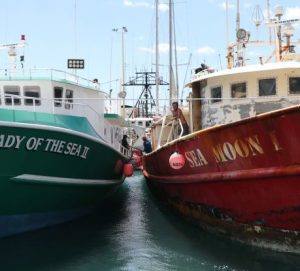
Wespac: Fisheries Management Council Needs To Be Fully Investigated
It’s time for a deep look into how the council is operating, particularly how it has been spending millions of dollars in grants and contracts. Secretive funds and wasteful projects. Conflicts of interest and political favoritism. Limited oversight and stonewalling administrators. Civil Beat’s recent three-part series “Reeling It In,” which helps lift the heavy lid on the murky operations of the Western Pacific Regional Fishery Management Council, raises as many questions as it answers about a vital government agency that has swayed from its core mission. (Do they warrant investigation? Do other Councils?) >click to read<19:03
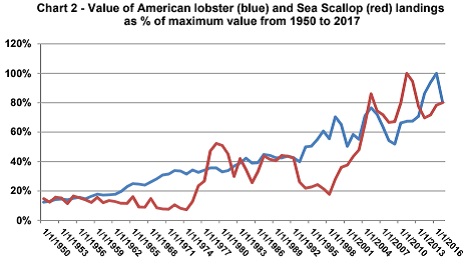
After over forty years of NOAA/NMFS management how are we really doing? Nils Stolpe
The Magnuson-Stevens Fishery Conservation and Management Act – I have seen the focus of government fisheries manage-ment increasingly shift away from the fishermen to the fish. The provisions of the Act as it was originally written were put in place to allow the U.S. fishing industry to regain control of the fisheries in the United States’ highly productive coastal waters,,, The legislation was singularly effective, so effective that within ten years or so of its passage the greatest portion of our domestic fish and shellfish production was being harvested by U.S. fishermen on U.S. vessels. This success was sold to the U.S. public – and the U.S. politicians – as an assault on the “sanctity” of our coastal waters by a burgeoning environmental industry that was (and still is) engaged in non-governmental empire building. This has resulted in a handful of multi-national ENGOs (Environmental Non-Governmental Organizations) that have become at least as influential as the fishing industry in national and international fisheries management. >click to read, and review the links and graphs<16:10

Conflicts, Lax Oversight Shroud This Secretive Fisheries Fund
In the past 10 years, millions of dollars have flowed through an obscure federal fund aimed at supporting commercial tuna fishermen in Hawaii and three U.S. Pacific island territories. But limited oversight, a process of awarding contracts mostly behind closed doors and a reluctance to produce public records about the fund have stymied efforts to find out how the money is being spent, who is receiving it and whether it’s being used in accordance with federal law, a Civil Beat investigation shows. >click to read<09:20
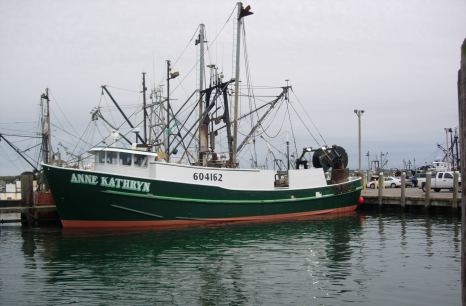
OUT TO CATCH THE LAST FISH? Fisheries “expert’s” anti-fisherman rhetoric gets taken to task!
“…most fishermen always want to catch more fish, regardless of how many there are.” This quote from the fisheries “expert” in the article, Warming waters spark marine migration, fish wars >click to read<on the warming ocean, and Joel’s subsequent comment, “And here in lies the problem. Look at what this cubical entrenched pencil pushing empty suit thinks of fishermen. Folks like this need to be taken to task”, inspired a re-post of this anti-fishing propaganda article, OUT TO CATCH THE LAST FISH? It’s a few years old, but sadly, as current as ever! To be a fisherman, these days, is to have first-hand knowledge of bias and mindless prejudice. Manipulating commercial fishing to save the stocks from “endangerment” and worse, has often been job justification for the political and personal agenda-driven, obsequious, career-climbing government fisheries “scientists” and managers. “Destructive” commercial fishing is also a handy foil for corporate style environmental groups’ fund raising efforts; and diminishing the importance of domestic commercial fishing is also a necessary step in the energy industry’s march into the sea. >click to read< Thank you, Dick.17:02
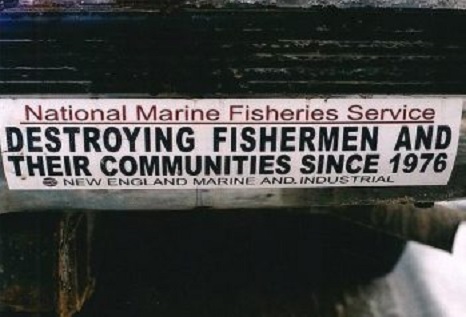
How to wreck an industry – Catch shares lead to consolidation of Alaskan fisheries
A recent study documenting consolidation and specialization in Alaska’s fisheries over the past three decades illustrates a broader trend taking hold in coastal communities across the country. Catch share programs, a new fisheries management system, are turning fishing rights into tradable commodities, driving up the cost to fish and consolidating fishing rights into the hands of a few wealthy owners. For instance, in Alaska’s Bering Sea crab fishery, just four companies own 77 percent of the rights to fish a single crab species. >click to read<11:30

Our coastal communities are drowning, largely thanks to tradable quotas and licences.
British Columbia’s coastal communities, long dependent on fishing for their livelihoods, are in serious trouble: population down, youth retention down, incomes down, investment down, infrastructure down, health and well-being down. It’s now almost impossible for young people to enter the fishery because of the high cost of purchasing or leasing the Individual Transferable Quotas (ITQs) attached to most fishing licences. ITQs are permits to catch a certain quantity of fish, and can be freely traded or leased. Coastal communities that used to have dozens of fishermen now may have a handful at best. The boatbuilding, repair, and gear supply businesses are likewise disappearing. How did this happen to our once prosperous coast? East Coast, best coast?>click to read<12:32

Rep. Young fights fish farms
In his 46 years as Alaska’s lone representative in Congress, Don Young helped toss out foreign fishing fleets from Alaska waters with the onset of the Magnuson-Stevens Fishery Conservation and Management Act in 1976, and today he is intent on doing the same with offshore fish farms. The MSA established an ‘exclusive economic zone’ for US fleets fishing from three to 200 miles from shore. Young’s effort follows a push that began a year ago by over 120 aquaculture and food-related industries to have lawmakers introduce an Advancing the Quality and Understanding of American Aquaculture (AQUAA) Act, which failed to get any traction. The campaign is organized under a new trade group called Stronger America Through Seafood and includes Cargill, Red Lobster, Pacific Seafoods and Seattle Fish Company. >click to read<15:50
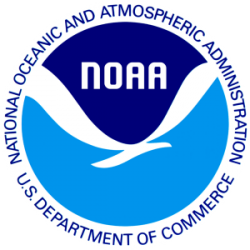
NOAA – Ecosystem-Based Fishery Management Implementation Plans by Region
NOAA Fisheries has released nine implementation plans that identify priority actions and milestones for Ecosystem Based Fisheries Management nationally and regionally, including for Atlantic highly migratory species, for the next five years. Each plan identifies milestones for a specified geographic area. The milestones relate to six guiding principles laid out in the 2016 EBFM Policy and Road Map >click to read<13:03
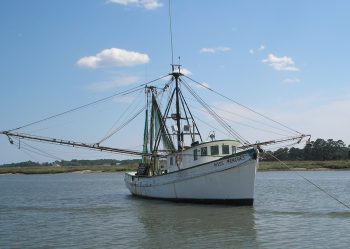
Saving Fishing Into The Future, Rocky Novello
Most all fishermen in the U.S.A., are having the same problems in fishing which include: NOAA Fisheries which uses outdated science, and outdated fishing regulations, which should have been changed as our oceans were changing. The big environmentalist organizations, funded by big oil, who collectively spent hundreds of millions of dollars getting rid of many our fellow commercial fishermen from so many places. They did a great job.,,, >click tor read, and comments from others will appreciated<10:40
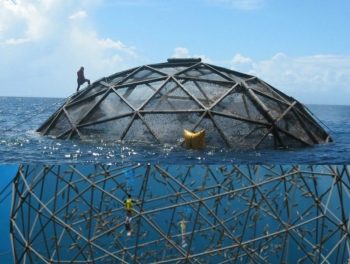
Putting the Brakes on finfish aquaculture in federal waters, Young Introduces Legislation to Protect Wild Fish Populations
Don Young, the Republican congressman for Alaska, has introduced the Keep Fin Fish Free Act, which would specifically prohibit federal agencies from permitting marine finfish aquaculture facilities in federal ocean waters, unless and until Congress passes a future law authorising such permits. “My legislation takes needed steps to prevent the unchecked spread of aquaculture operations by reigning in the federal bureaucracy and empowering Congress to determine where new aquaculture projects should be conducted.>click to read<08:52
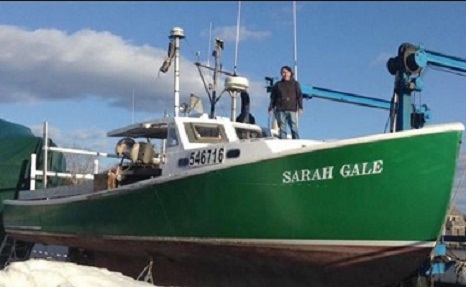
Please support our local commercial fishermen
If you don’t think commercial fishermen are an endangered species – think again. I have been very vocal over the years about my feelings on the commercial fishing industry being in jeopardy, and highlighting the importance of just what an integral part the industry plays in not only the economy, but the infrastructure as a whole, not only in our town and coastal towns across America. As someone with deep ties to our community and the fishing community in particular, I am in a unique position working as a mate on a commercial fishing vessel, and being a journalist. I see so much firsthand that I hope the general public will take into account when I write about it. So here I go again, with more food for thought on an issue that is near and dear to my heart. Thank you for reading, Shelley Wigglesworth >click to read<16:43
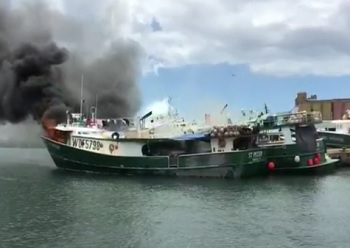
Coast Guard: Blaze on fishing vessel started during Customs inspection
A fire on a 40 (?)-foot fishing vessel Thursday apparently started when members of the crew were undergoing a routine Customs and Border Protection inspection and inadvertently left a stove burner on in the galley, officials said. The fire started about 1:30 p.m., and smoke pouring from the boat ― St. Peter ― could be seen from several blocks away. The Coast Guard said the fire started during a routine Customs inspection of the vessel. >2 video’s, click to read< 10:44
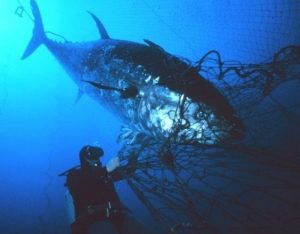
Tuna Fishermen Say Agencies Rejected Input on New Rules
Representing large net-fishing vessels in the Pacific Ocean, the American Tunaboat Association filed a lawsuit Wednesday claiming government fishery regulators left industry experts in the dark about a forthcoming biological opinion that could limit commercial tuna operations. The complaint, filed by Baker Botts attorney Megan Berge in Washington, D.C., federal court, names as defendants Commerce Secretary Wilbur Ross, the National Oceanic and Atmospheric Association and the National Marine Fisheries Service, or NMFS. >click to read<21:43
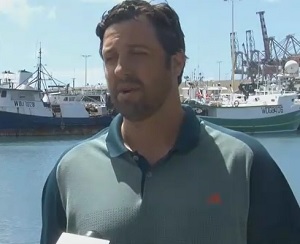
Swordfish season could re-open later this year
A sudden end to the “Swordfish Season” for Hawaii long-liners, but not because the fish stock is running low. Instead, it is because of run-ins with another ocean creature. “This year the swordfish industry is closed, it closed about two weeks ago,” stated Eric Kingma the Executive Director for the Hawaii long line Association. But those boat had to suddenly shutdown because of 17 loggerhead turtles, which are an endangered species. Video, >click to read<11:13

Sen. Marco Rubio Reintroduces Bipartisan Bill to Promote U.S. Shark Conservation
U.S. Senators Marco Rubio (R-FL), Lisa Murkowski (R-AK), Dan Sullivan (R-AK), Sheldon Whitehouse (D-RI), and Bill Cassidy (R-LA) reintroduced the Sustainable Shark Fisheries and Trade Act (S. 1008), bicameral legislation that recognizes the sustainable and economically-valuable fishing practices of U.S. shark fishermen and promotes U.S. standards for shark conservation and humane harvest abroad. >click to read<11:19
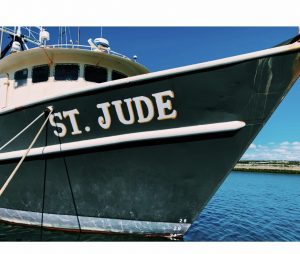
After an initial patch of rough seas, Fishing Vessel St. Jude is reeling in prized albacore, and accolades
ST. JUDE is the patron saint of lost causes. It wasn’t the name Joyce and Joe Malley would have chosen for the spanking-new 95-foot fishing vessel they bought in Port Arthur, Texas, in 1990, but it’s considered bad luck to change a boat’s name. In retrospect, a little heavenly protection might have helped. Buying the St. Jude took all they had, and then some. >click to read<11:18
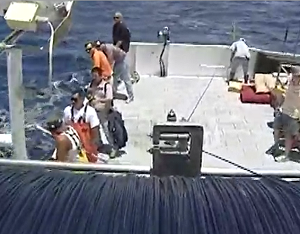
Turtle conservation rules cut Hawaii’s swordfish season short for 2nd year in a row
Swordfish season typically run through the month of June. But the 15 boats that make up Hawaii’s shallow-set longline fleet are sidelined for now. That’s because a law protecting endangered sea turtles has cut Hawaii’s commercial season short for the second year in a row. Earlier this week, fisherman hooked a loggerhead turtle ― the 17th one of the year. By law, that interaction brought the fleet’s season to an abrupt end. >video, click to read<10:53

Why Japan risked condemnation to restart commercial whaling
Fishermen in the village of Taiji are counting the days until July, when they will be able to hunt large, fatty minke whales commercially for the first time in decades. The community, which faces the Pacific coast of central Japan, is still haunted by its moment in the international spotlight 10 years ago, when the documentary “The Cove” criticized its dolphin culls and attracted a flood of activists. Yet, a sense of optimism is spreading. “The availability of more types of whales will make more people interested” in eating the meat, predicted Shinichi Shiozaki, who sells processed whale products. “It’s a good thing.” >click to read<13:14
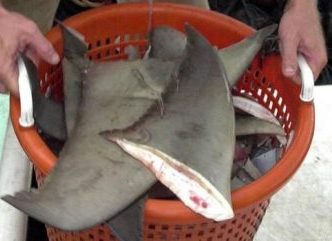
Reintroduced Shark Trade Bill Promotes Successful U.S. Conservation Policies at Policies at Global Level
The Sustainable Shark Fisheries and Trade Act of 2019 – A bipartisan bill introduced in the U.S. House advances global shark conservation by ensuring that all shark and ray products imported into the United States meet the same high ethical and sustainability standards required of American fishermen. The bill has broad support from conservation groups, zoos, aquariums and the fishing industry. >click to read<13:14
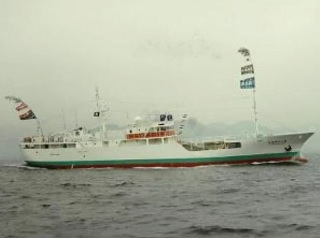
10 Indonesian nationals caught trying to smuggle shark fins from Hawaii plead guilty
The fishermen accused of trying to smuggle nearly 1,000 shark fins out of Hawaii changed their plead in court Friday to guilty. Federal investigators say the 10 Indonesian nationals were caught last month after trying to sneak the shark fins through Honolulu’s airport. They were all working aboard the Japanese-flagged fishing vessel Kyoshin Maru and were part of an extensive shark fining operation. >click to read<14:12
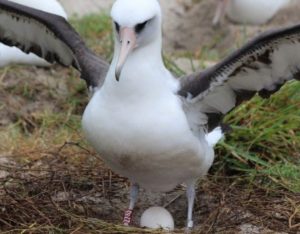
Wisdom the albatross: World’s oldest known bird lays another egg
The world’s oldest known bird is set to become a mother again – after raising at least 30 other youngsters. Wisdom the albatross has laid another egg at her nest site in Midway Atoll National Wildlife refuge on a tiny island about 1,200 miles northwest of Hawaii, in the Pacific Ocean. Biologists believe Wisdom is at least 68 years old, forcing them to re-evaluate the age which they expected albatrosses to live to. Albatross mate for life, but will recouple if a partner dies. The current age of her mate Akeakamai is not known, but the pair have been together since 2006. >click to read<21:39
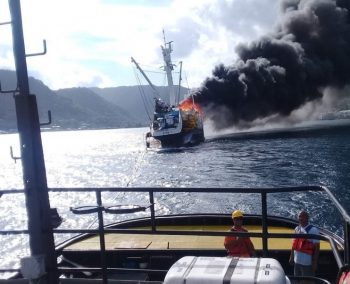
Response to fishing vessel fire in American Samoa continues, investigation underway
The Coast Guard in American Samoa is continuing to investigate the loss of the commercial fishing vessel Jeanette Friday. “The vessel poses minimal risk to residents and the environment,” said Lt. Al Blaisdell, supervisor, Marine Safety Detachment American Samoa. “Due to the depth of water, we understand there will be no salvage attempted. Any fuel remaining aboard if released will dissipate quickly. We are continuing with our investigation into the cause of the fire and the sinking.” Personnel from the MSD began interviews with the crew Thursday. Additional members from Coast Guard Sector Honolulu arrived Thursday to assist. The team will also interview the firefighters, tugboat crew and others to determine the cause of the fire, sinking, and timeline of events. >click to read<10:44
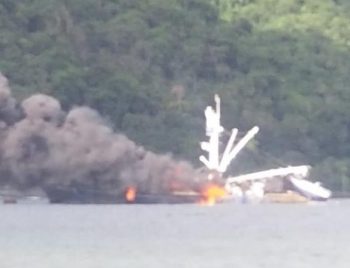
Fishing boat burns in American Samoa harbour
A fishing vessel was on fire in Pago Pago harbour in American Samoa today. The purse seiner, Jeanette, which only docked two days ago and reportedly had still to unload its cargo, was smoking at the wharf this morning. Initial attempts were made to fight the fire while it was docked but the vessel was later towed out into the harbour and it appeared to still be burning late into the afternoon. >link< Coast Guard, local agencies respond to vessel fire in American Samoa – >click to read< 13:45

To our valued readers here at Fishery Nation.
To our valued readers here at Fishery Nation. You have probably noticed recently there have been no postings on our website. I’m sorry to say that I have recently taken ill and have been hospitalized for the past week in the intensive care unit of my local hospital.
As you know, I’ve made it a priority in my life to keep you all informed on the goings on in our commercial fisheries here in the US and also abroad with stories and information that we feel is important to you, and also stories of interest. For the past seven years we have fulfilled this goal 365 days a year, every single day!
Please bear with me as we get through this situation and I am able to get back on my feet and continue what has become my passion, and mission in life, to keep the commercial fishermen informed and up to date as to the goings on in your industry.
If all goes well this will be a short period of time and I’ll soon be on my feet and able to get back at it.
Thank you one and all for your support and understanding. God bless you all, stay safe out there and please stay in touch with us.
Sincerely,
Borehead
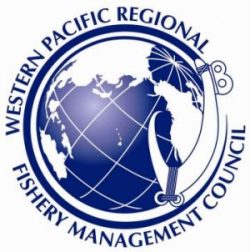
Western Pacific Fishery Management Council meeting in Garapan, Saipan October 23-24, 2018
174th Council Meeting – CNMI Date: October 23-24, 2018 Time: 8:30 am to 5:00 pm Location: Fiesta Resort and Spa, Garapan, Saipan, CNMI – 174th CM Agenda >click to read<17:09
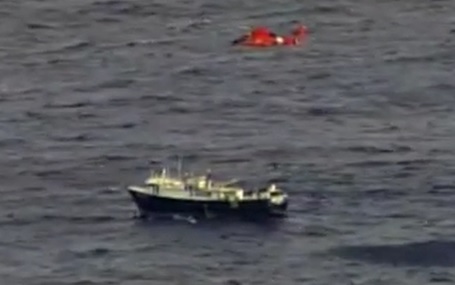
Coast Guard medevaced 62-year-old Captain off fishing vessel 82-miles north of Kahului
The Coast Guard successfully medevaced a 62-year-old mariner off a fishing vessel 82-miles north of Kahului, Wednesday. At 1:15 p.m., Sector Honolulu watchstanders received a call from the owner of the 82-foot fishing vessel Pacific Star reporting the captain was experiencing a medical emergency. A duty flight surgeon was consulted, determined the captain was displaying symptoms of a stroke and recommended a medevac to a higher level of medical care. Video, >click to read<21:12
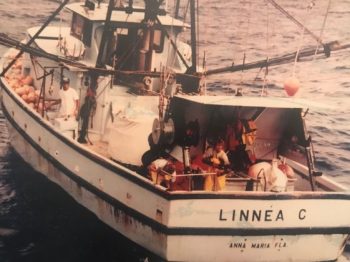
A life at sea – A swordfishing pioneer remembered
Legendary swordfish and tuna boat captain Warren Cannon passed away recently after a body surfing accident in St. Augustine. On Saturday, Sept. 29, Cannon’s ashes were scattered in the water off Longboat Pass and his adventurous life was then celebrated at the Swordfish Grill in Cortez.,,, “My dad started when he was about 17 in Cortez with Walter Bell, who gave him his first break running the Rachel Belle. He met my mother when he was 29. They started their swordfish empire, and he quickly became, arguably, the best swordfish captain everPhoto’s,>click to read<08:51 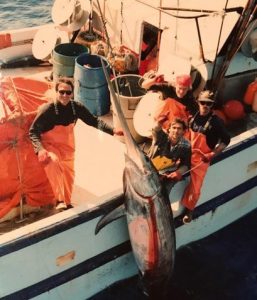
Legendary swordfish captain remembered – “I needed to remind him all the time that we won the Civil War,” Tom Ring said. “But I’ve always said that if I was flat broke and needed to make a trip to earn some money, he’d be the guy. He just had the feel for it. He’d stick his nose out the window and sniff. A half mile later, he’d sniff again and maybe make a correction. It was like he could smell it.” >click to read< 10/4/2016 09:36






